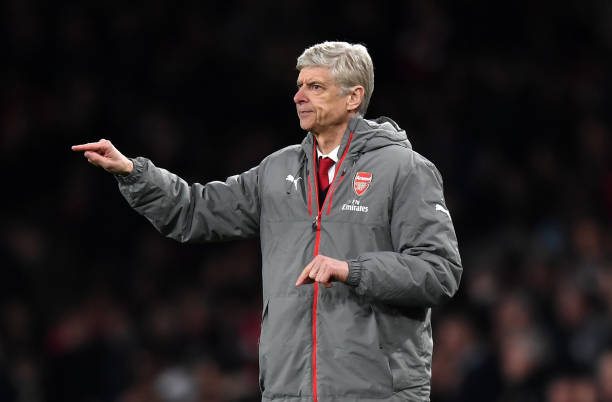‘Even at my age, you can change.’
This was what Arsene Wenger had to say after beating Middlesbrough 2−1 last Monday, after being asked about his deployment of three centre backs for the first time in over two decades.
It’s an interesting quote, not for what we can extrapolate from it, but for the fact that he felt he had to defend himself from criticism that he couldn’t change in the first place.
It’s a curious stance to take; stating that playing in a different formation is proof that you have the ability to do it whenever you want, when the main criticism of Wenger’s management over the last few years has been his reticence to do exactly what he did on Monday night.
Arsenal have been in need of a Plan B for ages now, and to want credit for implementing a new tactical approach at this late stage of the season is hopeful at best.
I’m not implying that Wenger doesn’t deserve credit for changing the way he set Arsenal up to play last Monday, but the premise that this is somehow an indication of how he will work in the future is hugely flawed.
For this to be true, we would have to assume that this move to three at the back was purely voluntary and not influenced by other factors, when in fact this couldn’t be further from the truth.
Arsenal didn’t play three at the back because of a new found belief in a system that prioritises defensive solidity ahead of pushing players further forward.
There hasn’t been a eureka moment that has proved 4−2–3–1 to be defensively flawed, just look at how Juventus completely nullified Barcelona over the course of two legs with Mario Mandzukic playing as a left winger in that formation.
As much as Wenger would like it to look as if he changed to three at the back for tactical reasons, he didn’t.
Arsenal went to three at the back because his only viable right–back, Hector Bellerin, has been playing whilst injured for a month and he needed a rest. Gabriel has been so out of place at right-back that any further game time there is too much of a hindrance to deal with. Mathieu Debuchy and Carl Jenkinson might as well not exist at this point, such has been their removal from contention for a first team spot since Christmas.
Wenger’s choice was simple: Continue to play Bellerin whilst hobbled, or change the formation.
That’s it.
As much as we would like to add this to the litany of issues that is turning Arsenal into a soap opera, the idea that playing three at the back at Middlesbrough would somehow improve Arsene Wenger’s job security is quite the leap.
Even if he sticks with three at the back against Manchester City at Wembley on Sunday, and it proves to be the reason Arsenal win that game, it’s still not enough to show that he’s re–invented himself like a middle aged popstar does.
Monday was the equivalent of seeing your dad buy a Harley Davidson motorbike, or an earring.
If Arsenal do go on a winning streak towards the end of the season, and playing with three at the back brings better performances out of the likes of Aaron Ramsey and Alex Oxlade–Chamberlain, then it’ll only be further proof that Wenger was wrong for so long to go without changing in the first place. Seeing Mesut Özil playing as right wing/inside forward and not be completely lost should be incentive to anyone to want to see if it can work in the long term.
There have been plenty of occasions where Arsenal were in a spell of bad form when a tactical change could have helped turn things around. The situation Wenger found himself in on Monday was certainly not an unusual one.
If a decision on Wenger’s future is to be made, then it is imperative that it is made whilst judging the decisions he makes, and not the results from those decisions.
Arsenal could win the next few games solely down to playing three at the back, and they could just as easily lose those same games for the same reason.
Causation doesn’t equal correlation, and as much as we would like to see an upturn in Arsenal’s fortunes, why it happens is far more important than how.
If Ivan Gazidis is going to follow through on his promise of a ‘thorough review’ of how Arsenal is being run, then it needs to focus on exactly that; ‘how’.
Anything else will just be a hollow exercise.
Arsenal need to change the way they are being run, not just the people who are in charge of running it.
If those people can demonstrate an ability to reshape their own thinking, then they deserve a chance to show how much they’ve learned.
Arsene Wenger playing three at the back at Middlesbrough isn’t such a demonstration.
He needs to do far, far more than this in order to truly prove that he has indeed learned from his errors and is not wed to his ways in such a manner that is destructive to Arsenal’s short and medium term future.
This may be a start, but it’s no more than that.
It might not be ‘too little, too late’, but it’s certainly too little.
It’s up to the board to decide whether it’s too late.

